Introduction & Analysis
This collection of open-source English-language news articles published over the past week highlights significant events and issues concerning Myanmar. They present a snapshot of the safety and security landscape in Myanmar.
Violence and Conflict:
- The junta continues to conduct airstrikes and artillery attacks, resulting in significant civilian casualties in areas like Magway, Sagaing, and Ayeyarwady.
- Fierce ground clashes between junta forces and various resistance groups, including the Arakan Army (AA) and People's Defense Forces (PDFs), are widespread, leading to territorial losses for the junta.
- Religious sites, including Christian churches and Buddhist monasteries, have been targeted in attacks by the military.
Political Instability and Junta Actions:
- Despite claiming control, the junta faces significant territorial losses and widespread resistance.
- The implementation of forced conscription has driven some to flee.
- The junta is bolstering its control in urban centers by arming home-front militias.
External Actors and Their Impact:
- Thailand is intensifying border security due to cross-border crime and has hosted discussions on the Myanmar conflict.
- China's role involves brokering talks and economic interests, facing local protests against interference.
- ASEAN is reportedly losing patience with the junta.
- Russia is increasing its influence, including potential nuclear cooperation and direct flights.
Economic and Social Impacts on Security:
- Increased criminal activity, such as theft linked to gambling, is a concern in some areas.
- Conflict and environmental issues like drought threaten livelihoods.
- Control over internet access, including the use of Starlink by resistance groups and junta surveillance, is a significant security factor.
ASEAN
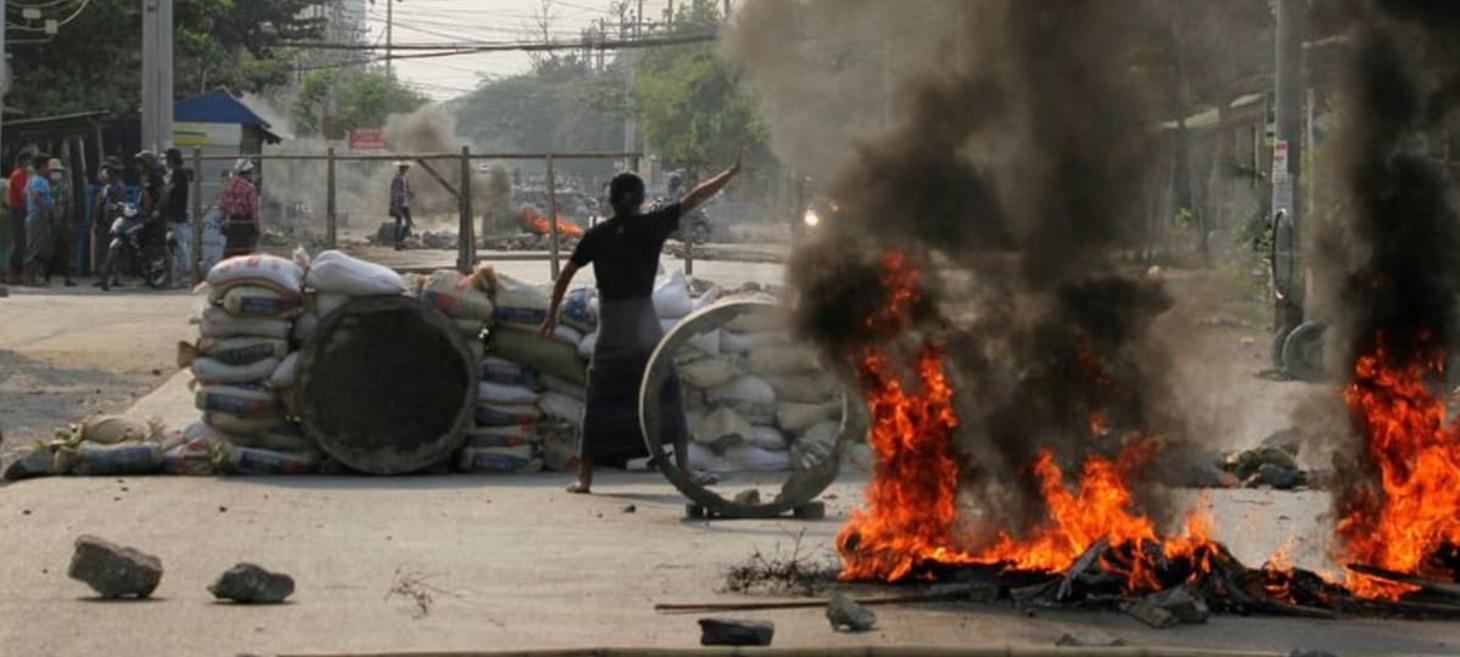
Commentary: ASEAN is losing patience on Myanmar. Can Malaysia push for a new approach?
ASEAN is increasingly frustrated with the lack of progress in resolving the Myanmar crisis following the 2021 coup, as evidenced by their skepticism towards the State Administration Council's (SAC) election plans and the ineffectiveness of the Five-Point Consensus. With Malaysia assuming the ASEAN chairmanship in 2025, there is an opportunity to push for a new approach that goes beyond the 5PC, focusing on a medium-term, multi-pronged strategy that considers the changed conflict dynamics and prepares for a post-conflict future. This involves engaging with various Myanmar stakeholders, including the National Unity Government (NUG) and ethnic armed organisations, while also coordinating with external partners to deliver humanitarian aid more effectively and build capacity for Myanmar's future governance. Malaysia's chairmanship could be pivotal in defining ASEAN's next steps by drawing on past experiences and individual member strengths to foster a more forward-looking and consistent approach to the complex situation in Myanmar.
Conflict
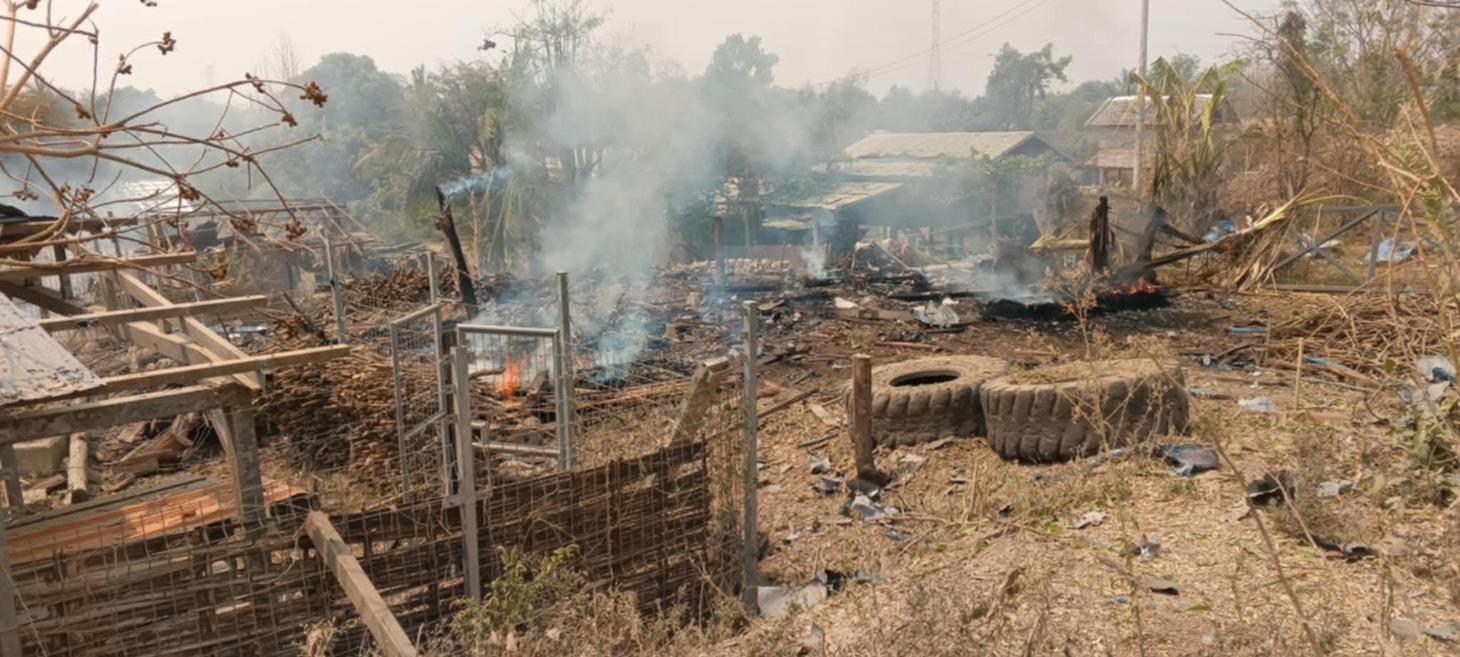
11 civilians killed in Myanmar junta airstrikes on village clinic in northern Magway Region
On Saturday, March 22, 2025, at approximately 8:40 am, a Myanmar junta airstrike targeted a village clinic in Hnan Khar village, Gangaw Township, in the northern Magway Region, resulting in the deaths of at least 11 civilians. The victims included patients, clinic staff, the clinic’s head doctor, his pregnant wife and child, a family of three, an elderly woman and her grandchild, and a neighbor. The airstrike obliterated the clinic and also reduced a neighboring house to ashes, with body parts scattered at the scene. The clinic, located in the center of the village, had just opened for the day when the attack occurred.
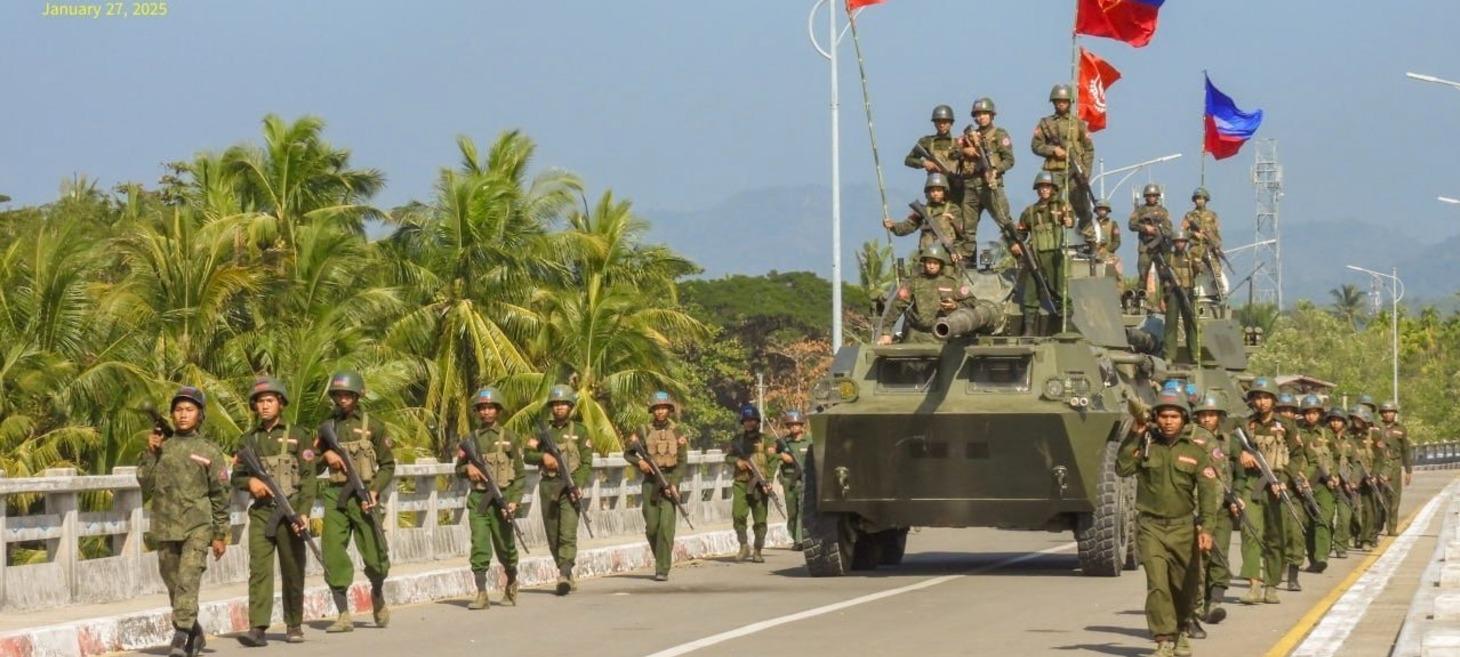
Fierce clashes reported as AA-led forces continue advance into Ayeyarwady Region
Fierce clashes have been reported in Ayeyarwady Region's Lemyethna Township, near the Rakhine State border, as the Arakan Army (AA) and allied groups advanced against Myanmar's military. The regime responded by deploying drones and paramotors to defend their positions. Intense fighting occurred near Aung Zan Kwin village, close to the Pathein-Monywa highway, resulting in the retreat of junta soldiers after reportedly suffering heavy losses. The junta also advanced into the nearby villages of Ka Nyin Taing and Kyaung Kwin. Additionally, a warplane reportedly dropped bombs near the village of San Kone.
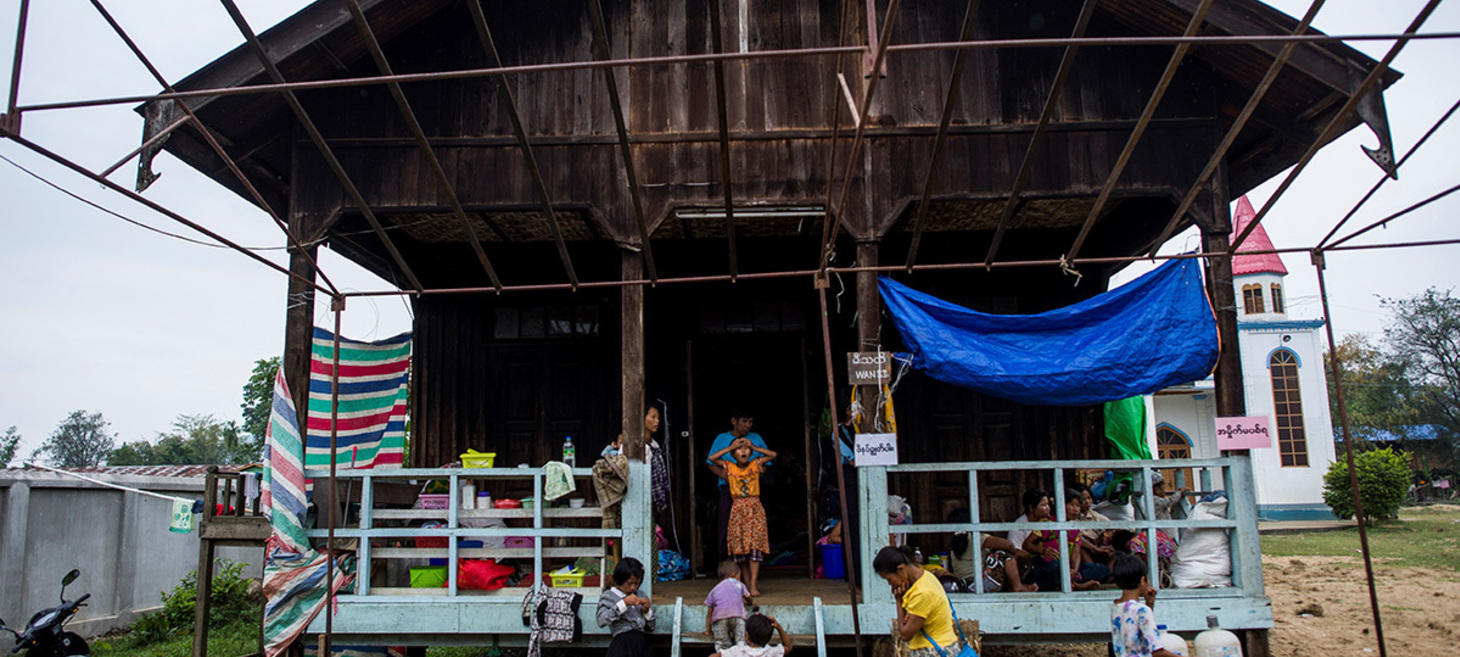
Military sets fire to cathedral amid increasing attacks on Christians in Myanmar
**St. Patrick's Cathedral in Myanmar's majority-Christian Kachin state was reportedly set on fire by soldiers from the Buddhist nationalist military junta. The historic church was reduced to ashes amid escalating attacks targeting Christian communities and religious sites. This incident occurred in the Banmaw area around 4 p.m. last Sunday, just before the annual Saint Patrick's Day celebration. The burning follows earlier destruction on the church grounds, including the demolition of the priest's residence, diocesan offices, and a high school. This is part of a larger pattern of intensified offensives by the junta in regions with large Christian populations, including airstrikes on churches and civilian areas, particularly since the military coup in February 2021 and the launch of Operation 1027 by ethnic resistance groups. The military junta, officially the State Administration Council, is accused of retaliating against communities suspected of supporting ethnic resistance movements in areas like Kachin, Chin, Karen, and Karenni states, where significant Christian populations reside.
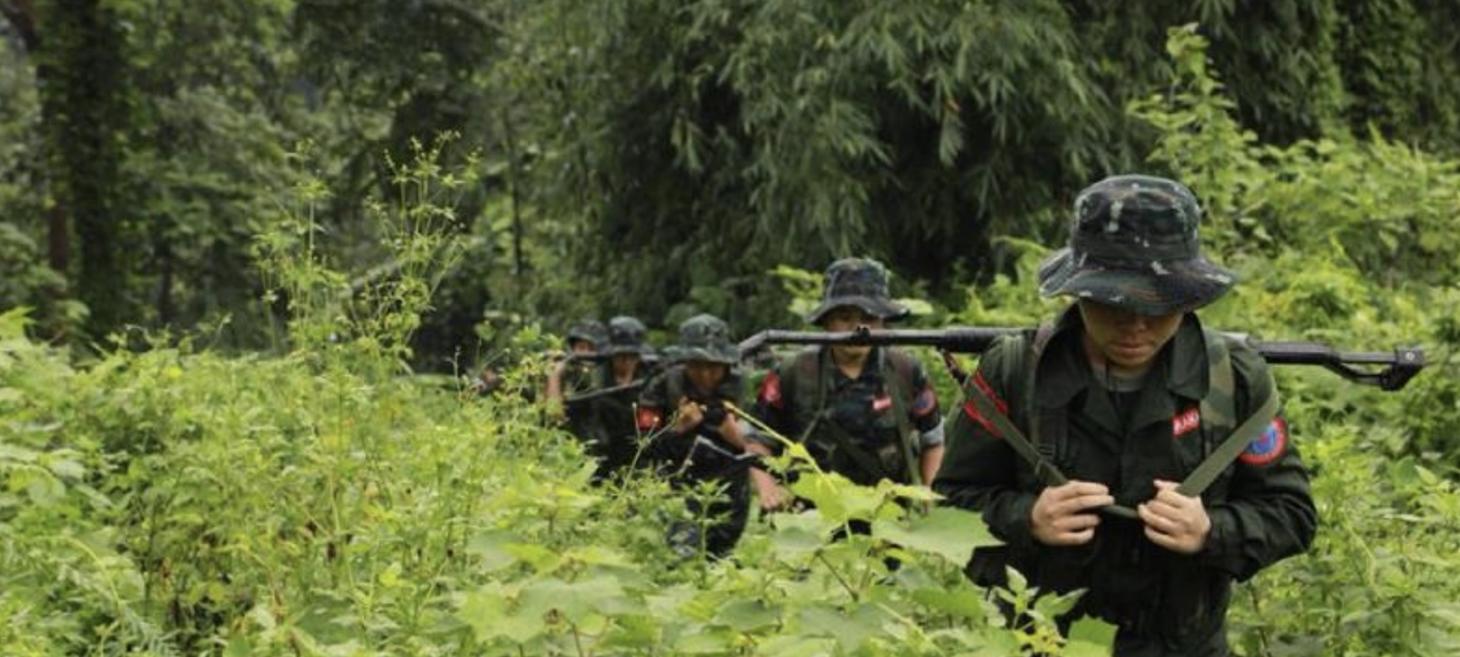
Myanmar air force bombs villages as AA, allies continue pressing into Ayeyarwady Region
On March 21, 2025, the Myanmar military regime conducted aerial bombings on resistance targets in Lemyethna Township, Ayeyarwady Region, as the Arakan Army (AA) and allied anti-junta forces continued their advance into the area from neighboring Rakhine State. A junta warplane dropped two bombs near Tone Taw village, prompting ground fire from those present. Local sources indicated that junta troops were positioning themselves in Tone Taw, near the Pathein-Monywa highway, in anticipation of the advancing anti-junta forces led by the AA. This military action is part of a broader context of ongoing clashes and resistance activities across Myanmar, as evidenced by related articles mentioning events in Chin, Magway, and Mandalay Regions, as well as near the Thailand-Myanmar border.
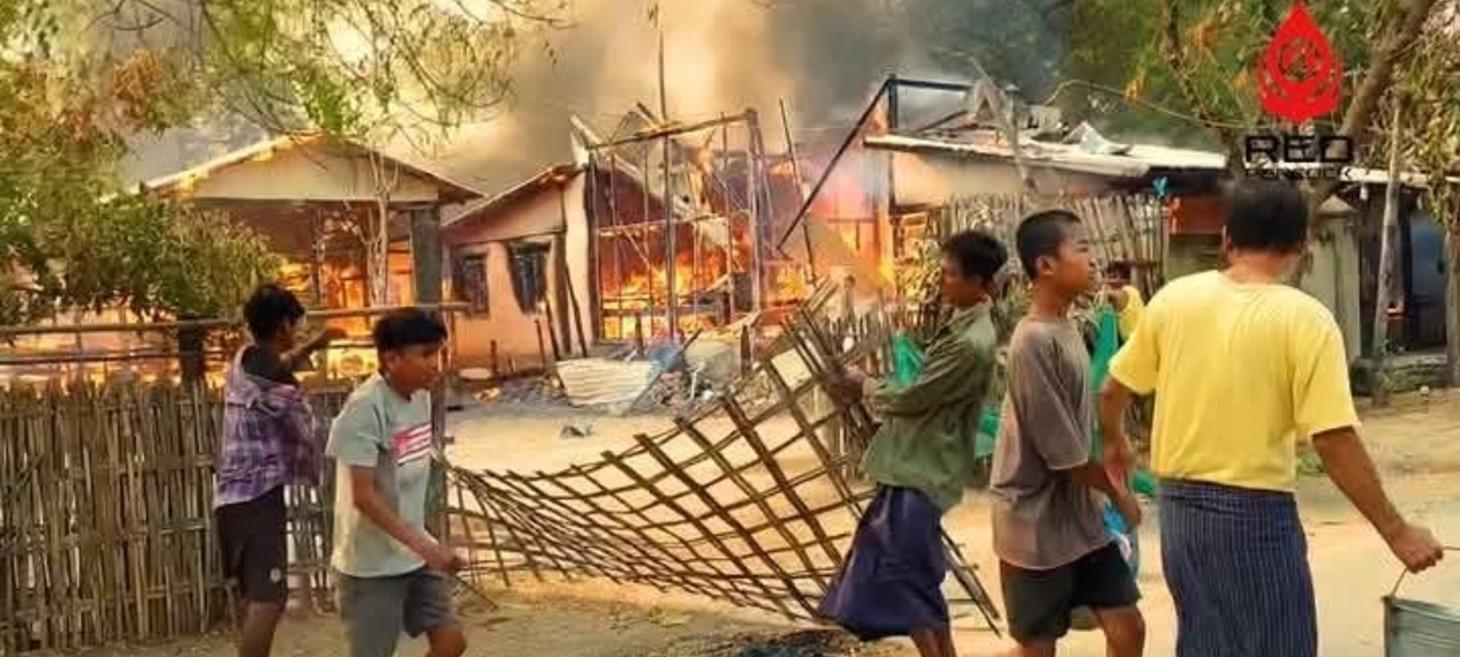
At least four killed by Myanmar junta paramotor, artillery attacks in Sagaing’s Myaung Township
Following an ambush of regime forces in Sagaing Region’s Myaung Township on Wednesday, the Myanmar junta retaliated with paramotor and artillery attacks over two days, resulting in the death of at least four civilians and injuries to three others. On March 19, 2025, two paramotors bombed a boarding school in Taung Ward, instantly killing an 80-year-old woman and her son, and leaving her daughter injured. A separate paramotor attack on the same day damaged at least eight houses. These attacks, reported by Myanmar Now on March 21, 2025, occurred after a short skirmish that followed an ambush of a junta scout unit by anti-junta fighters.

Thousands Flee Amid Myanmar Junta Raid Near Famous Pilgrimage Site
Junta troops raided the village of Letpan in Sagaing Region, near the Mingun pilgrimage site, following clashes with the Sagaing People’s Defense Force (PDF) along the Sagaing-Mingun road. The fighting included artillery fire that damaged a monastery, and junta forces reportedly arrested villagers. According to the Sagaing PDF, approximately 70 soldiers and Pyu Saw Htee militias looted homes, arrested male villagers protecting their property, and torched at least 20 houses. Pro-junta Telegram channels claimed PDF forces had fortified positions and planted mines, and that junta reinforcements faced ambushes. Resistance forces reported the junta used drones and received artillery support from across the Irrawaddy River. The fighting rendered the road inaccessible, forcing travel between Mingun and Sagaing to occur via Mandalay by boat and car, as lamented by the monk Wirathu. This was not the first raid on Letpan, as junta troops also raided the village three times in January following the killing of a local militia leader. Data for Myanmar reports that around 4,000 houses have been destroyed or damaged by junta arson attacks in Sagaing Township since the coup.
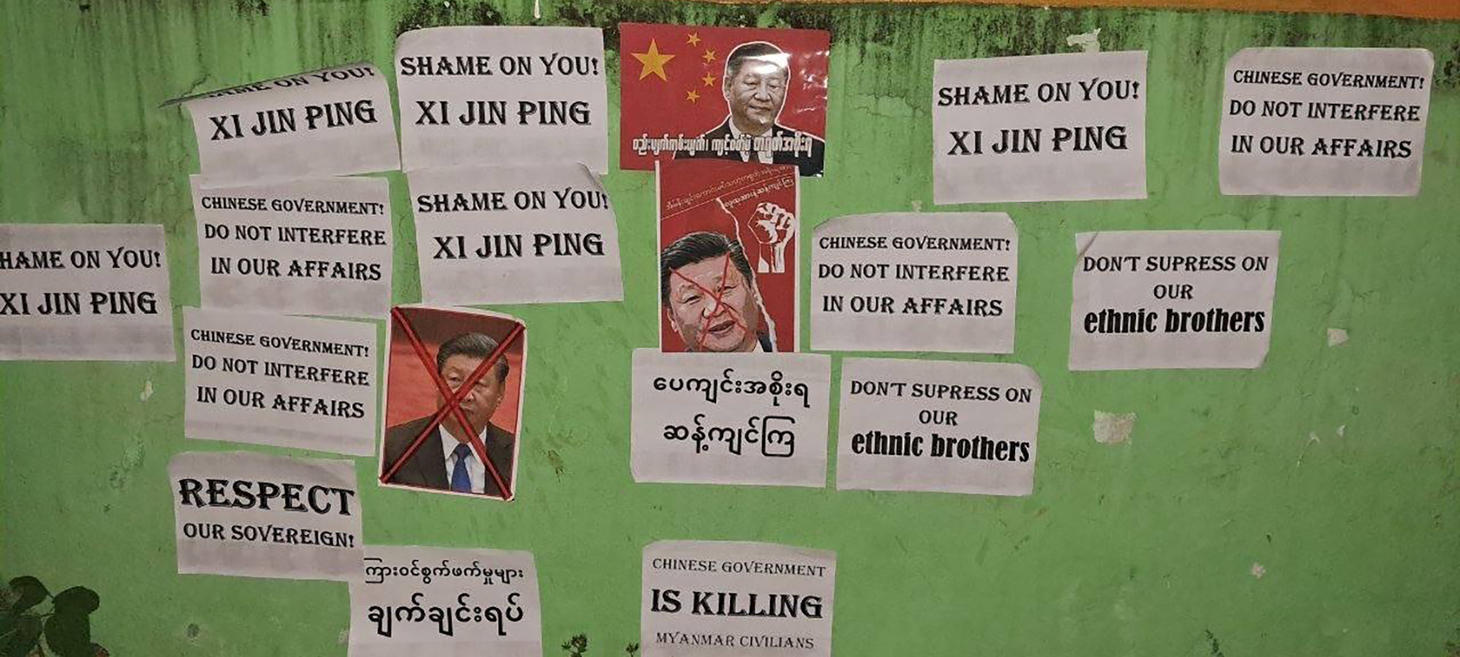
Lashio Protesters Call on China to Stop Interfering in Their Lives
Residents of Lashio are protesting against a potential withdrawal of the Myanmar National Democratic Alliance Army (MNDAA) from the city, which was reportedly seized by the MNDAA last year, fearing a return to military junta rule and expressing a preference for the safety and freedom they feel under MNDAA administration. These protests involve silent demonstrations and the distribution of posters urging China to stop interfering in Myanmar's affairs and to cease supporting the junta, with residents emphasizing the importance of Myanmar's sovereignty. This comes as the Myanmar junta and the MNDAA are preparing for another round of China-brokered talks, expected to focus on Lashio, despite unconfirmed reports suggesting a possible MNDAA withdrawal within six months under a previous China-brokered deal. While the MNDAA administration currently continues to operate in Lashio and plans to celebrate the Thingyan New Year Festival, MNDAA police have reportedly been questioning residents in some areas, and China, which previously brokered a ceasefire and the reopening of border trade checkpoints, has warned that these checkpoints could close again. China had also summoned top military commanders from the MNDAA and Lashio’s military leadership for a meeting lasting over a week.
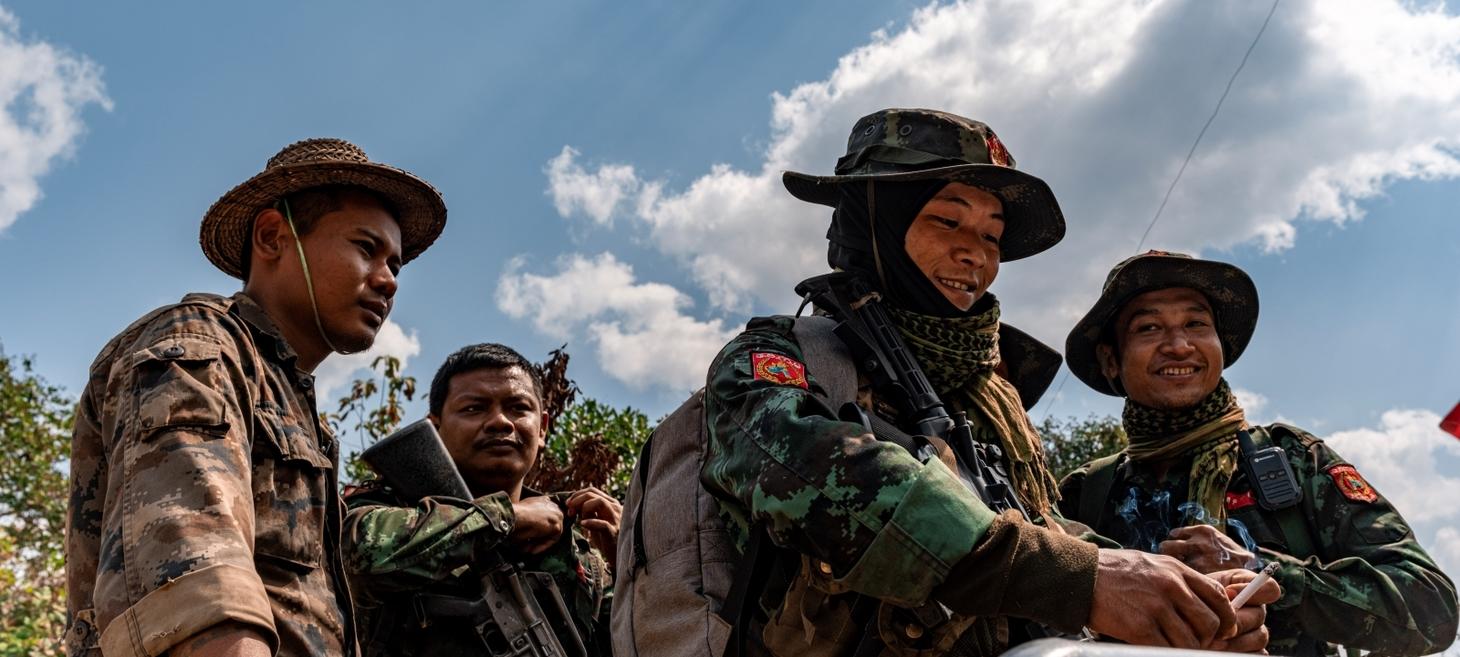
‘Ready to fight’: Mon on the march
Following the 2021 coup in Myanmar, the Mon resistance movement experienced a significant shift with the emergence of the New Mon State Party-Anti Dictatorship (NMSP-AD). This group broke away from the long-standing New Mon State Party (NMSP), which had maintained a ceasefire with the Myanmar military since 1995. Driven by disappointment with the NMSP's continued engagement with the junta and a desire to join the widespread uprising against military rule, key figures like Major Banyar Mon and Banyal Leir led the formation of the NMSP-AD. Operating from the mountainous border region between Mon and Kayin states, the NMSP-AD has been actively fighting against the military, launching attacks and establishing a presence in sympathetic villages. They have also formed alliances with other Mon resistance groups, such as the Mon Liberation Army (MLA), under the Ramanya Column. Beyond combat, the NMSP-AD is also involved in administering essential services like healthcare in areas under their control. This move signifies a renewed commitment to armed struggle for a Mon homeland, despite some lingering divisions and differing opinions within the broader Mon nationalist movement regarding the best path forward.
Crime & Narcotics

News
On Saturday, March 25, 2025, Thai law enforcement intercepted 38 Starlink satellite transmitters that were allegedly destined for use in scam centers in Myanmar. This action by Thai authorities highlights concerns related to the use of technology like Starlink in illicit activities across borders. The interception occurred in Thailand, preventing the devices from reaching their intended locations in Myanmar.
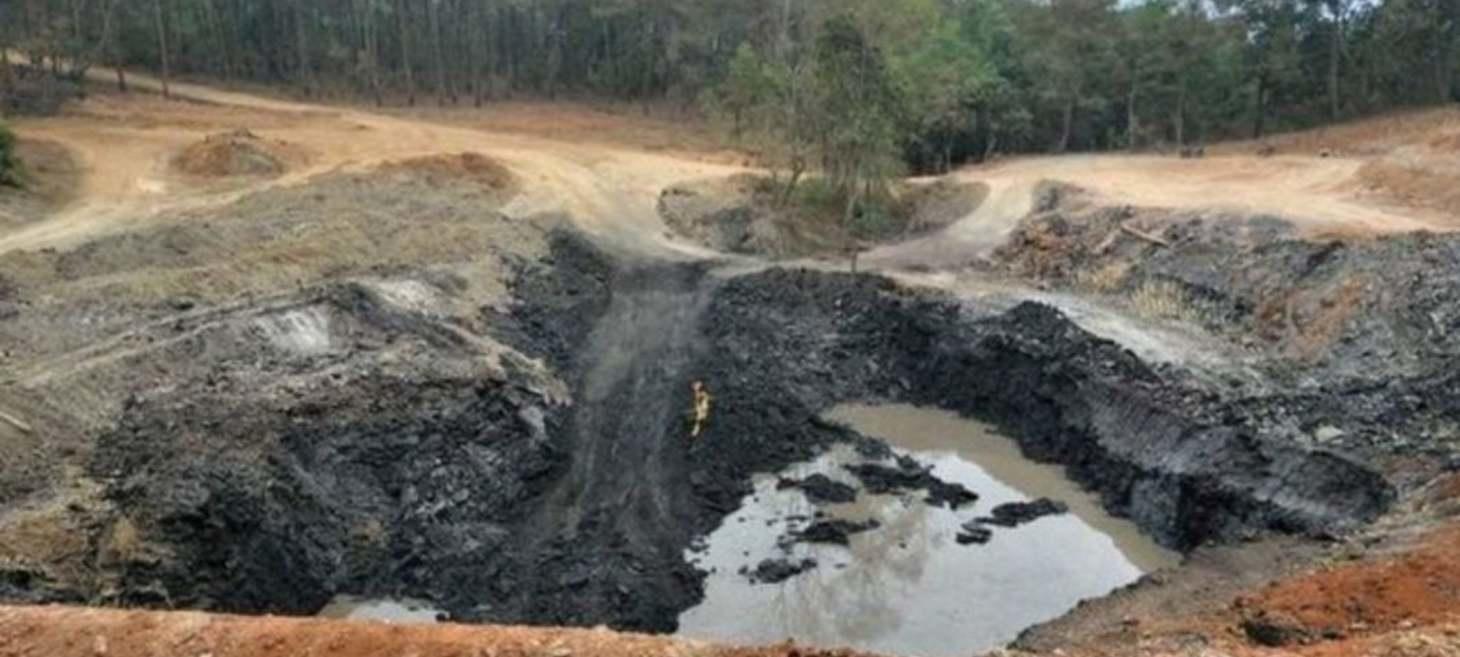
Illegal Chinese Miners Arrested Amid Mining Dispute in Shan State
Military police arrested seven illegal Chinese nationals in Baw Hseng village tract, Kalaw Township, southern Shan State, on March 16, 2025, amid rising tensions over mining profits and a suspected business dispute within the industry. The arrested individuals were associated with Land Dragon mining company (two people), Taunggyi Thein Company (four people), and Power Star Company (one person). These detainees had been living illegally in the area for decades, and many other undocumented Chinese nationals reportedly remain. Consequently, lead ore sales in Baw Hseng have come to a standstill due to the military council's refusal to grant export permits, even as the price of mined metals has increased. This situation highlights the ongoing issue of illegal Chinese migration to the area and the environmental consequences of mining activities, which have exacerbated annual water shortages for local communities. T
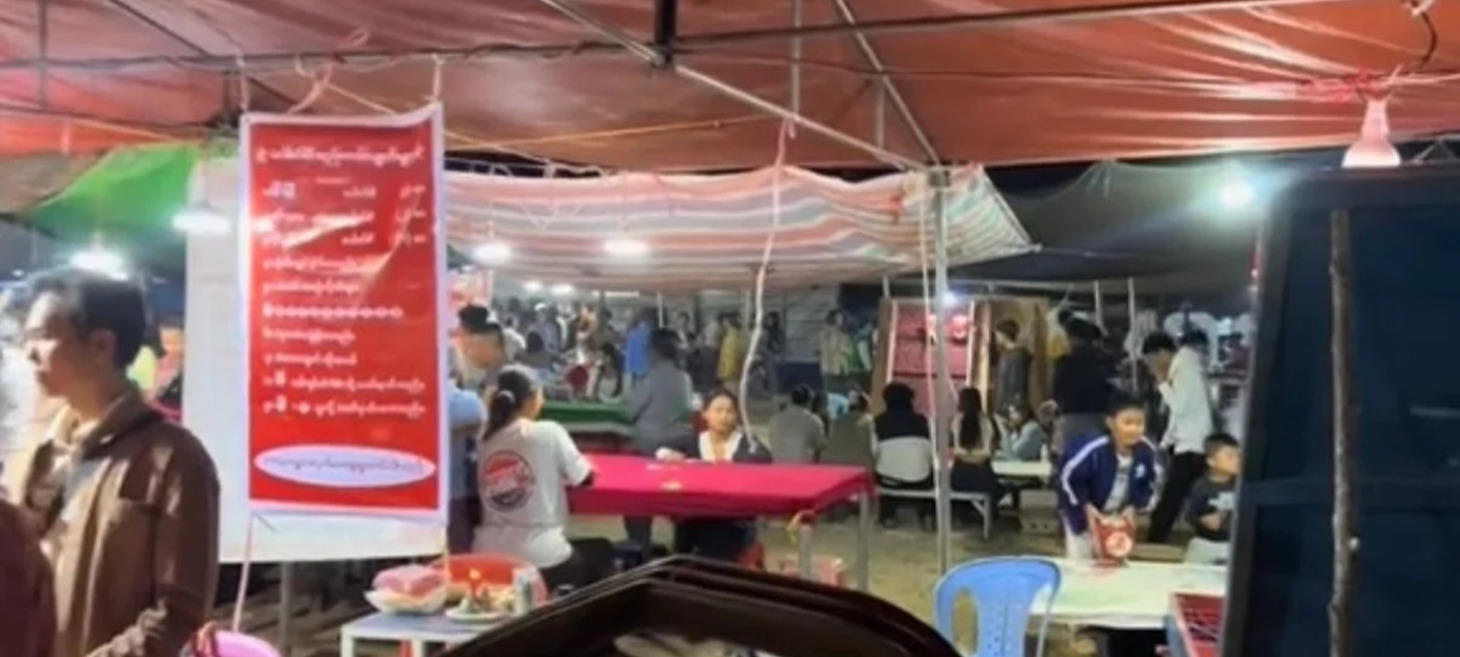
MNDAA Authorised Gambling Establishments Flourishing in Lashio
Since January 2025, the Myanmar National Democratic Alliance Army (MNDAA) has been officially authorizing and taxing gambling establishments in Lashio City, Shan State, despite gambling being normally illegal in Myanmar. These MNDAA-permitted gambling operations occur both under the guise of officially sanctioned festive events like funfairs and pagoda festivals, as well as in standalone establishments operating openly. This proliferation of gambling, which has been ongoing for the last three months, has led to concerns among Lashio residents about a potential rise in thefts and robberies, as well as an increase in open prostitution in the area. The MNDAA is reportedly aware of these gambling operations and taxes them for their activities, with further reports suggesting that gambling establishments may even be permitted during the upcoming Thingyan festival. This practice of authorizing and taxing gambling and related businesses like KTV lounges and brothels is also occurring in other MNDAA-controlled areas.
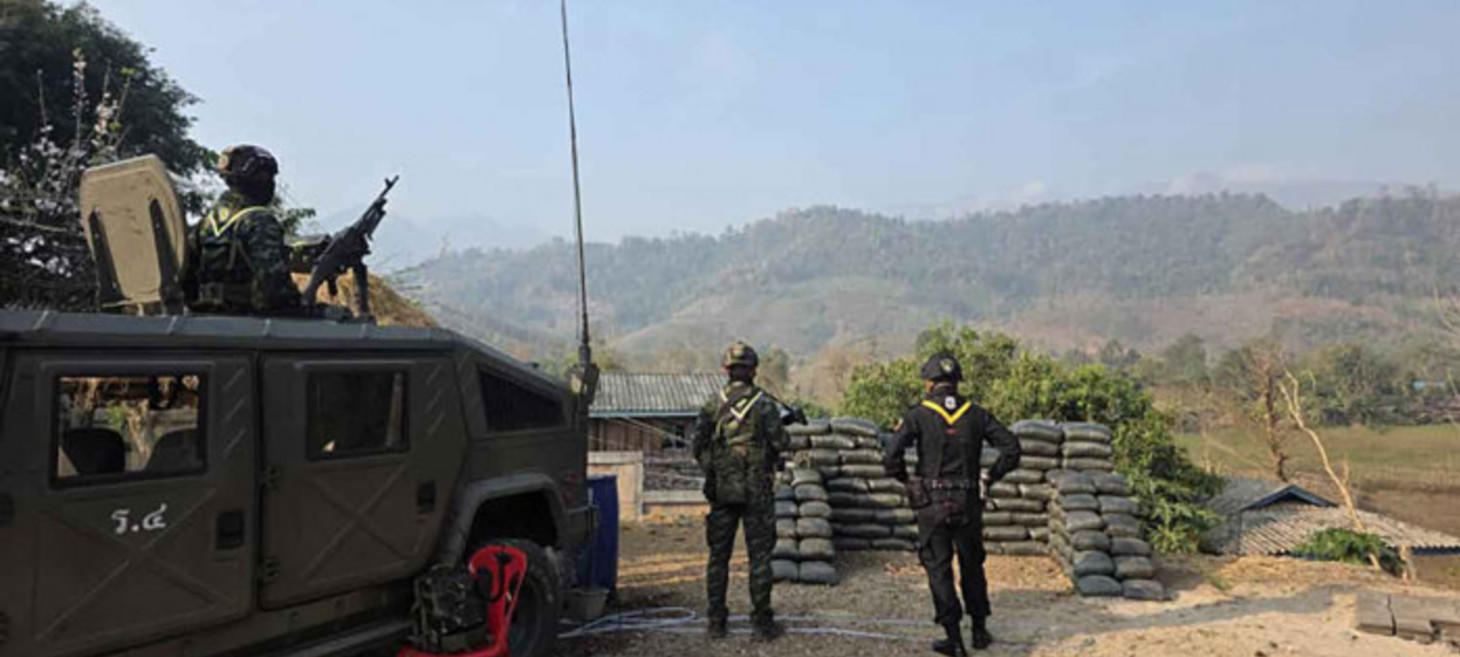
Thai border security measures to intensify amid criminal threat
The Thai government is intensifying border security measures in response to a rising threat of transnational crimes. Defence Minister Phumtham Wechayachai, chairing the National Security Council, attended a meeting to review the security situation following the halting of fuel exports, electric supplies, and telecommunication signals to parts of Myanmar suspected of harboring cyber criminals and human traffickers. Officials considered setting up a legal advisory committee and specialized operation centers to tackle specific threats like drug trafficking. Mr. Phumtham announced that there would be no easing of restrictions for Myanmar, as these measures are necessary to combat criminal networks. The government is also stepping up efforts to curb transnational crimes, noting the relocation of call center scams and seeking better cooperation with Cambodia and Laos. Discussions are underway regarding a proposal to designate five districts in Tak province bordering Myanmar as special security zones, with consideration for economic impact and feasibility. For long-term solutions to call center scams, Mr. Phumtham suggested that the country where the hub of such scams is located should lead a collaborative effort.
Economy
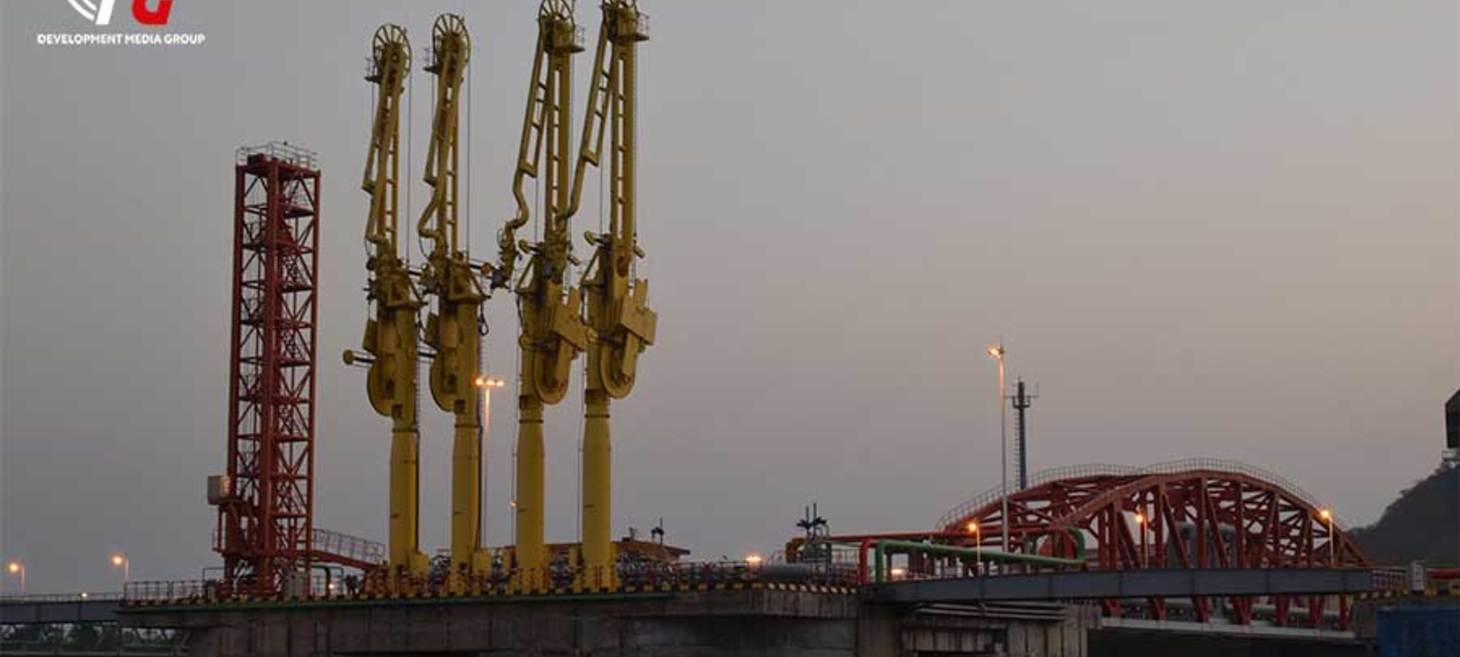
Business as Usual at Chinese Projects in Arakan State
Despite intense fighting in Arakan (Rakhine) State's Kyaukphyu Township since February 2024, Chinese-owned oil and gas projects on Maday Island continue to operate as usual. This includes the oil refinery, storage facilities, and the pipelines transporting oil and gas to China, as well as the gas refinery in Malakyun Village. Locals report ongoing tanker arrivals and the normal functioning of the pipeline, which runs through Arakan State and central Myanmar to China. Although fighting is occurring near Maday Island and artillery shells have landed near the gas pipeline on the mainland, the Chinese infrastructure projects and a special economic zone agreed upon with the junta have not yet been implemented. Nevertheless, the junta continues to profit from the operational oil and gas pipelines.
Ethnic Issues
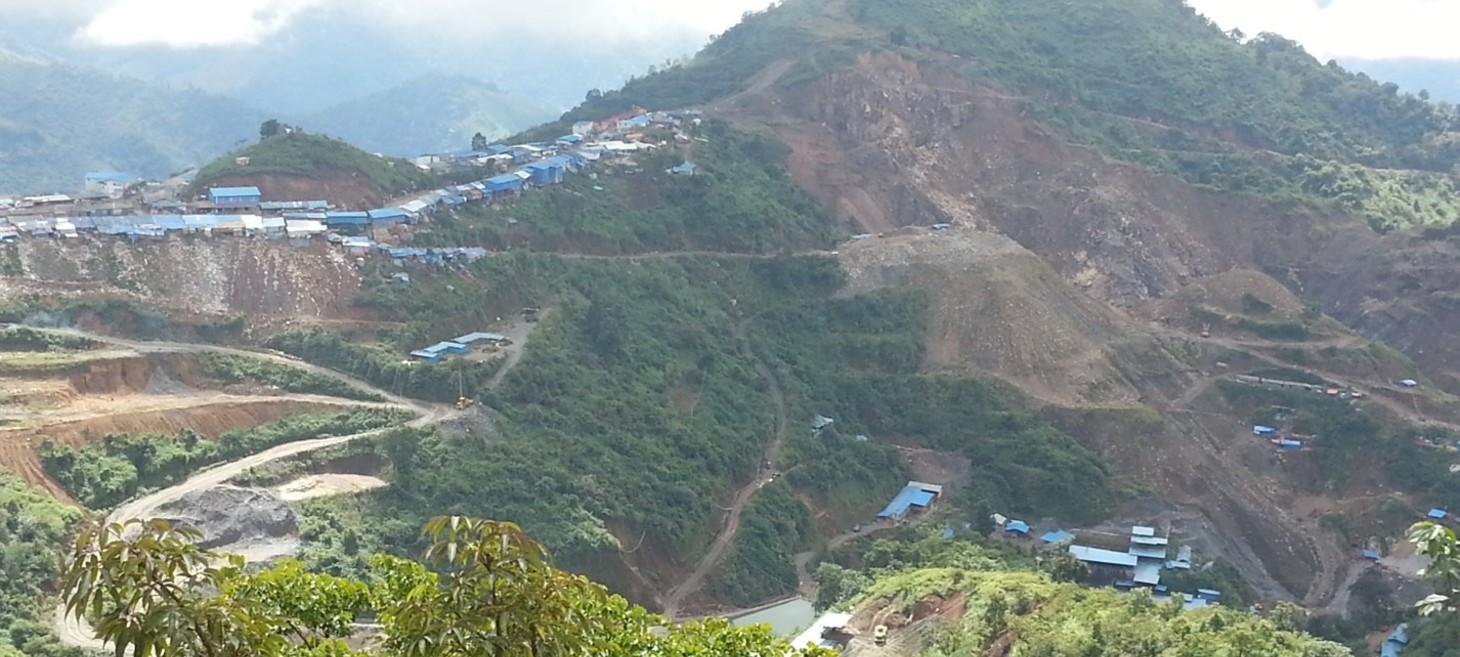
Wa authorities to lift mining ban in Myanmar
Authorities in the autonomous Wa region of Myanmar are preparing to lift the mining ban that was imposed in August 2023, with a draft document from the Wa Economic Planning Committee (EPC) indicating that mining and processing can resume "as soon as possible" after recent discussions. Companies will need to apply for new licenses under a new scheme introduced in February, and while the exact timeline is unclear, mining supplies are reportedly being transported to Man Maw. The EPC aims to improve safety, operational efficiencies, and revenue through new technologies and a reformed legal framework, while reaffirming government ownership of all ore, concentrate, and waste stockpiles. The previous mining ban caused a nearly 50% year-on-year drop in Myanmar’s tin mine output in 2024 and a decrease in its share of Chinese ore imports. Despite the anticipated restart, the International Tin Association (ITA) believes that exports of tin concentrates are unlikely to return to usual levels for at least two months due to the need for new licenses, dewatering of underground workings, and the reapplication for visas by Chinese workers. This development is expected to ease supply-side pressure in the concentrate market, particularly following a temporary suspension at a mine in the Democratic Republic of Congo.
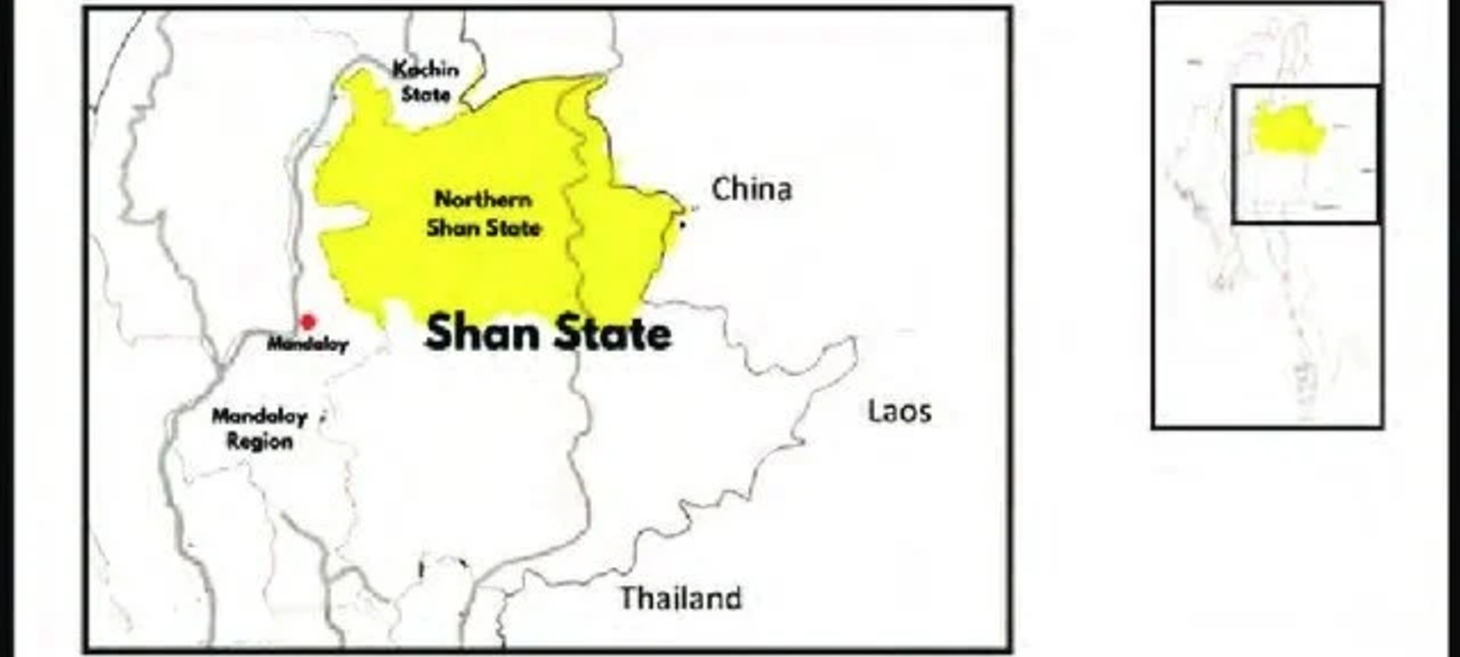
The Northern Shan Dilemma: Unraveling the Chaos
The "Northern Shan Dilemma" article from the Shan Herald Agency for News explores the intricate and unstable situation in Northern Shan State, particularly in the post-1027 context, where diverse ethnic groups seek autonomy and challenge the central government's weakened control. The region is characterized by historical territorial disputes, the influence of external actors like China, and ongoing tensions between various EAOs such as the TNLA, MNDAA, KIA, and SSPP/SSA. While some EAOs like the TNLA and MNDAA have established self-rule governance and economic policies in their territories, they face challenges related to inter-ethnic relations, economic constraints, and the need for inclusive political participation. The article suggests that resolving the conflict requires new, localized approaches to governance that address the diverse goals and identities of the region's inhabitants, potentially leading to arrangements ranging from independent statelets to a federal or confederal system.
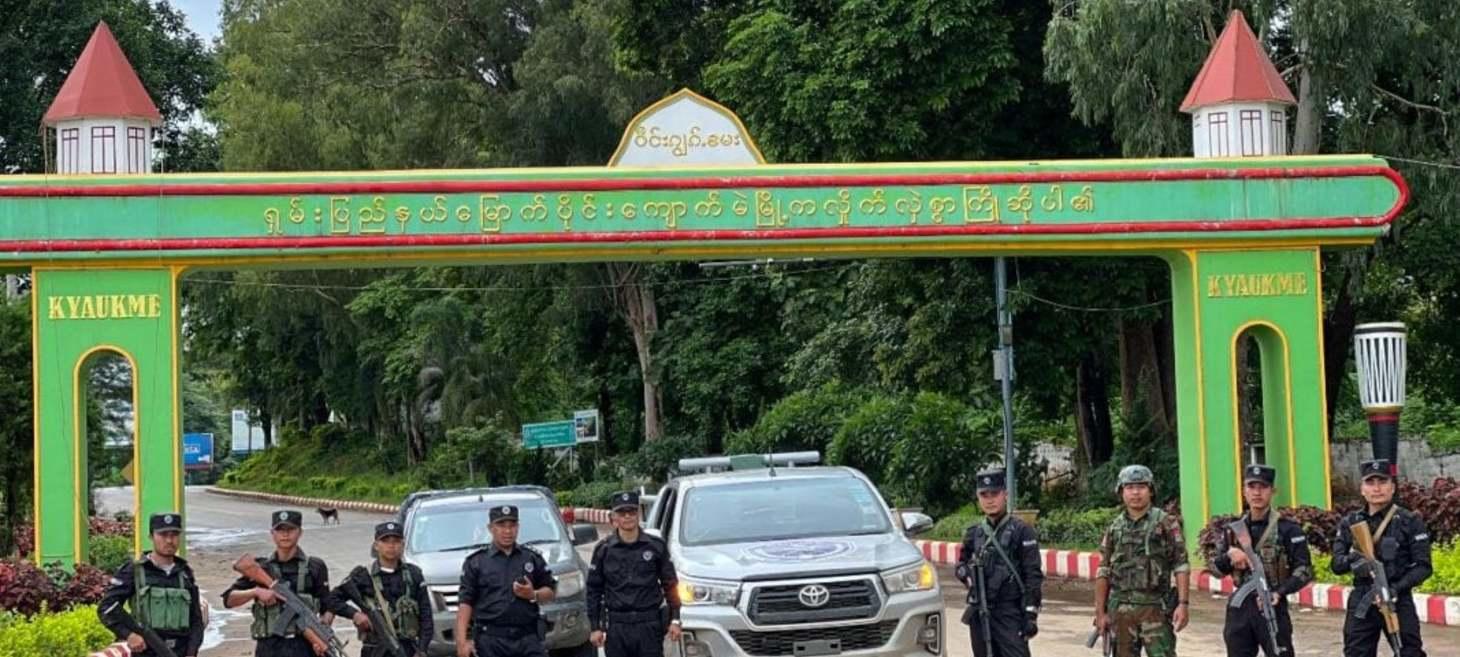
17 Civilians Released After Detention and Alleged Abuse by TNLA in Kyaukme
Seventeen civilians detained by the Ta’ang National Liberation Army (TNLA) in Kyaukme Township, Shan State, for over a month on accusations of illegally cutting teak trees were released in late February 2025 after local sources reported they faced beatings and were forced to pay fines of approximately one million Kyats each, along with guarantees from village leaders and the return of confiscated tractors. A local woman indicated that some of the released individuals are still recovering from injuries sustained during interrogation. The TNLA, which gained control of Kyaukme in August 2024, faces criticism from locals who believe their harsh tactics worsen the economic and employment difficulties already present due to the ongoing conflict in an area also considered a stronghold of the Shan State Progress Party/Shan State Army (SSPP/SSA), highlighting growing tensions between armed groups and civilians. The Shan Herald Agency for News also reported on other issues in Shan State, including the drying up of Inle Lake, the arrest of illegal Chinese miners, and various human rights concerns involving the junta and other armed groups.
Foreign Affairs
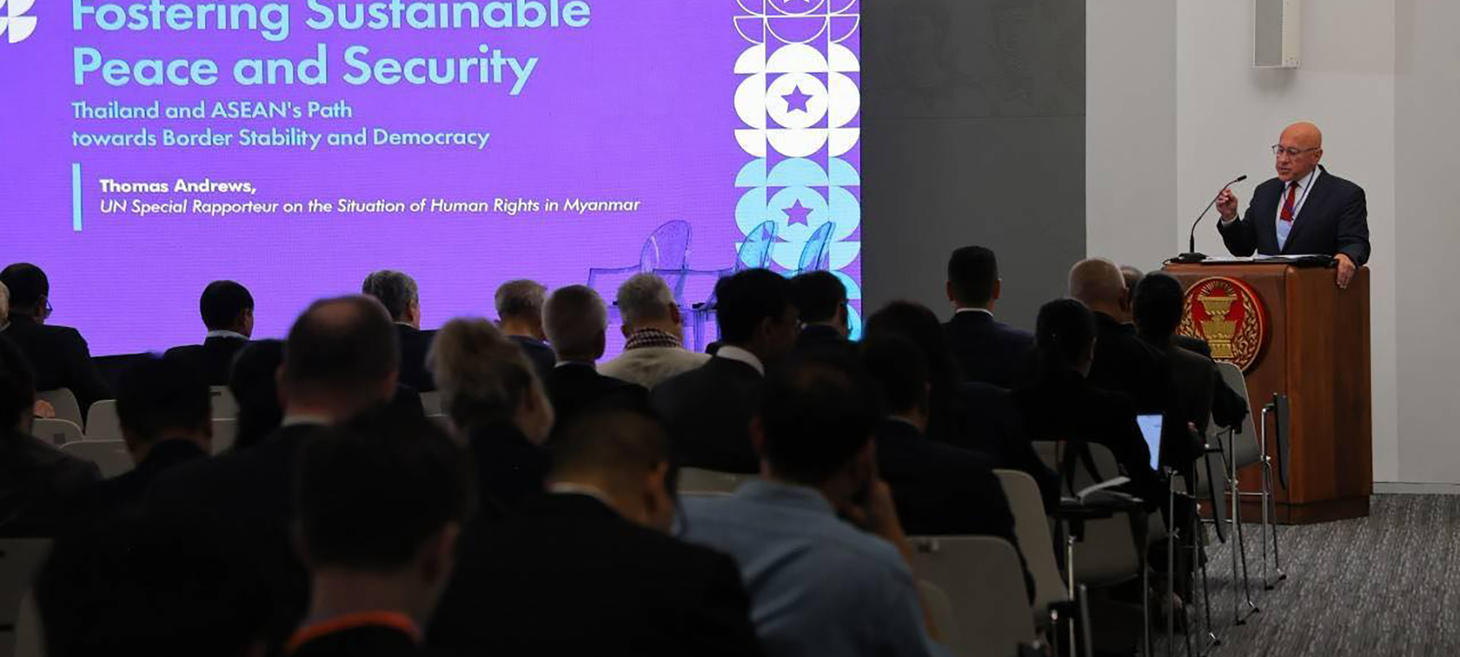
Thai Parliament Seminar Addresses Security Impacts of Myanmar Crisis
Thailand’s Parliament hosted a seminar addressing Myanmar’s ongoing conflict and its implications for Thailand and the region, focusing on border security and democracy. Organized by the House Committee on National Security, the event included Thai officials, Myanmar anti-regime representatives, human rights groups, and the UN Special Rapporteur on Human Rights in Myanmar. Since the 2021 coup, Thailand has faced challenges such as border clashes, telecom scams, refugees, and migration due to the conflict. Despite losing territory, the junta plans to hold elections, a move opposed by Tom Andrews due to the detention of opposition leaders. Major General Wichai Semathong expressed doubt about the election and noted Russia’s growing influence, including plans for a nuclear plant, which Thailand is monitoring. Wong Chen of Malaysia echoed concerns about the nuclear plant, urging ASEAN opposition. Rangsiman Rome highlighted over 7 million refugees in Thailand and increased illegal activities affecting the Thai economy, emphasizing the need for democratic processes in Myanmar and suggesting Thailand facilitate dialogue. Experts reported the conflict remains a stalemate, posing security challenges for Thailand, and panelists concluded ASEAN needs a more formal approach to engage all parties and halt conflict-fueling activities to restore stability.
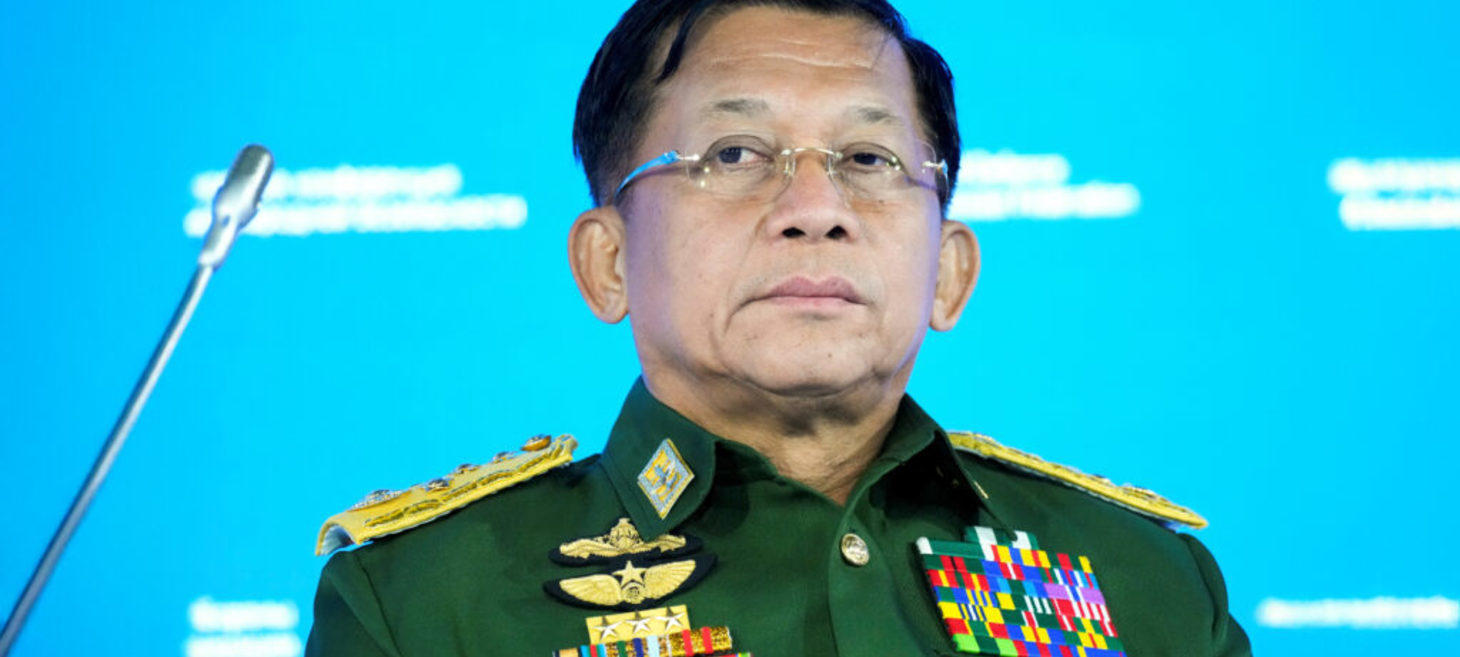
Myanmar Junta Chief to Attend BIMSTEC Summit in Bangkok
The 6th Summit of the Bay of Bengal Initiative for Multi-Sectoral Technical and Economic Cooperation (BIMSTEC) will be held in Bangkok on April 3-4, hosted by Thailand. This summit marks the first visit to Bangkok by Myanmar’s military junta leader Min Aung Hlaing since the 2021 coup and the first summit-level meeting chaired by Thai Prime Minister Paetongtarn Shinawatra, with all BIMSTEC member states, including India's Prime Minister Narendra Modi, confirming their leaders' participation. Founded in Bangkok in 1997, BIMSTEC aims to deepen economic cooperation among the seven member states bordering the Bay of Bengal—Sri Lanka, Bangladesh, Bhutan, Myanmar, Nepal, and Thailand—fostering economic, social, and cultural ties. The summit, preceded by senior officials’ meetings, will focus on maritime cooperation, sustainable development, and regional connectivity, and will also feature bilateral meetings to strengthen diplomatic and economic relations, including the signing of a Free Trade Agreement (FTA) between Thailand and Bhutan to enhance trade and cooperation in sectors like tourism and agriculture.

Myanmar Airways Launches Direct Flights From Moscow To Yangon
Myanmar Airways International (MAI) will launch direct flights from Moscow to Yangon in October 2025, with a route operating through Mandalay and Novosibirsk, aiming to boost tourism by showcasing Myanmar's beaches, cultural heritage, historical architecture like the Shwedagon Pagoda and Bagan, and diverse cuisine. This initiative coincides with discussions between Russia and Myanmar to enhance healthcare collaboration, including Russia's readiness to supply medicines and medical devices, share expertise in combating malaria, train Myanmar healthcare workers, and involve them in international healthcare projects. Furthermore, the two countries are expected to introduce a visa-free regime to further stimulate travel. However, potential visitors should be aware of Myanmar's political instability and take necessary precautions.
Governance & Rule of Law
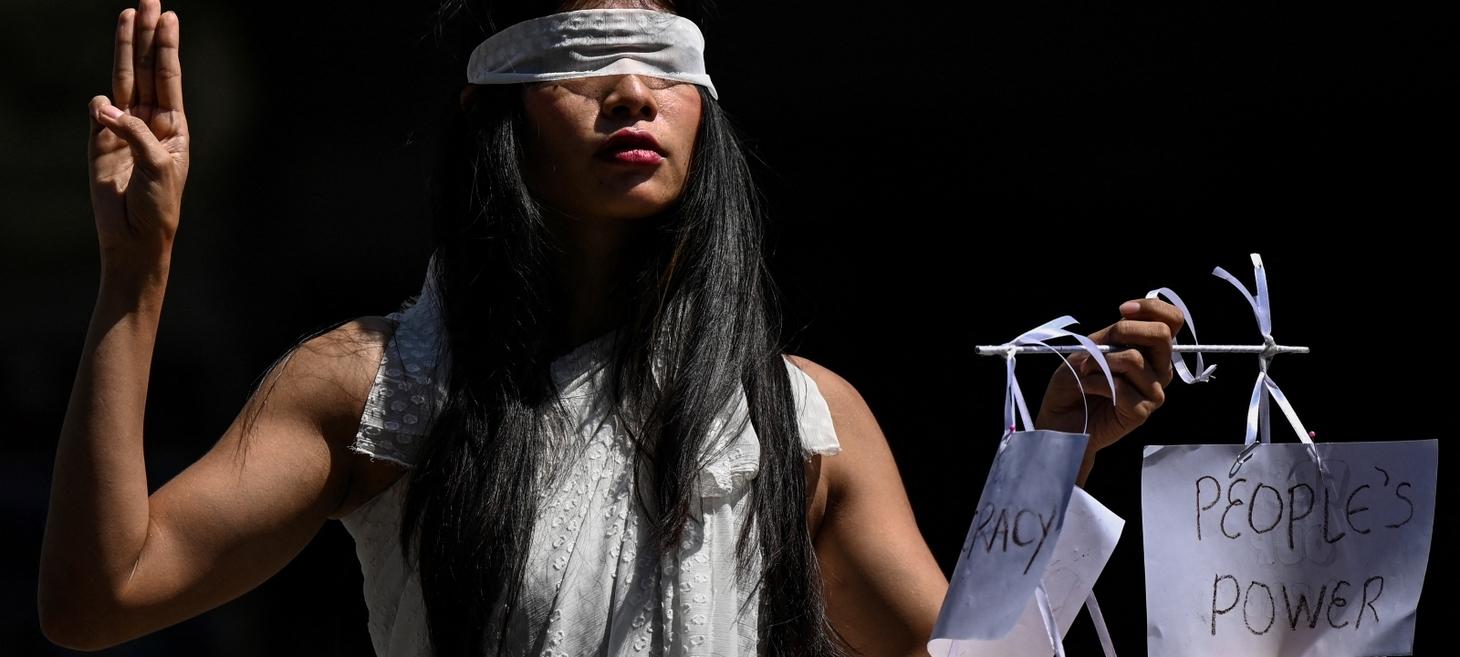
Rethinking justice in the present
The mainstream discussion of transitional justice (TJ) in Myanmar following the 2021 military coup overly emphasizes future punishment of perpetrators, potentially hindering healing and reconciliation by overshadowing other crucial aspects like truth-seeking, reparations, and institutional reform. This preoccupation with retribution, fueled by the daily atrocities and popular sentiments demanding payback, risks creating a "passivity trap" by deferring TJ actions to a future "transitional" era dependent on the junta's downfall. The article argues for a broader conception of justice that moves beyond mere retribution to address underlying structural issues such as institutionalised discrimination and power disparities, advocating for the initiation of participatory processes in the present "interim" period through dialogue, truth-telling, and community empowerment to foster a more just society and avoid deepening societal divisions.
Military
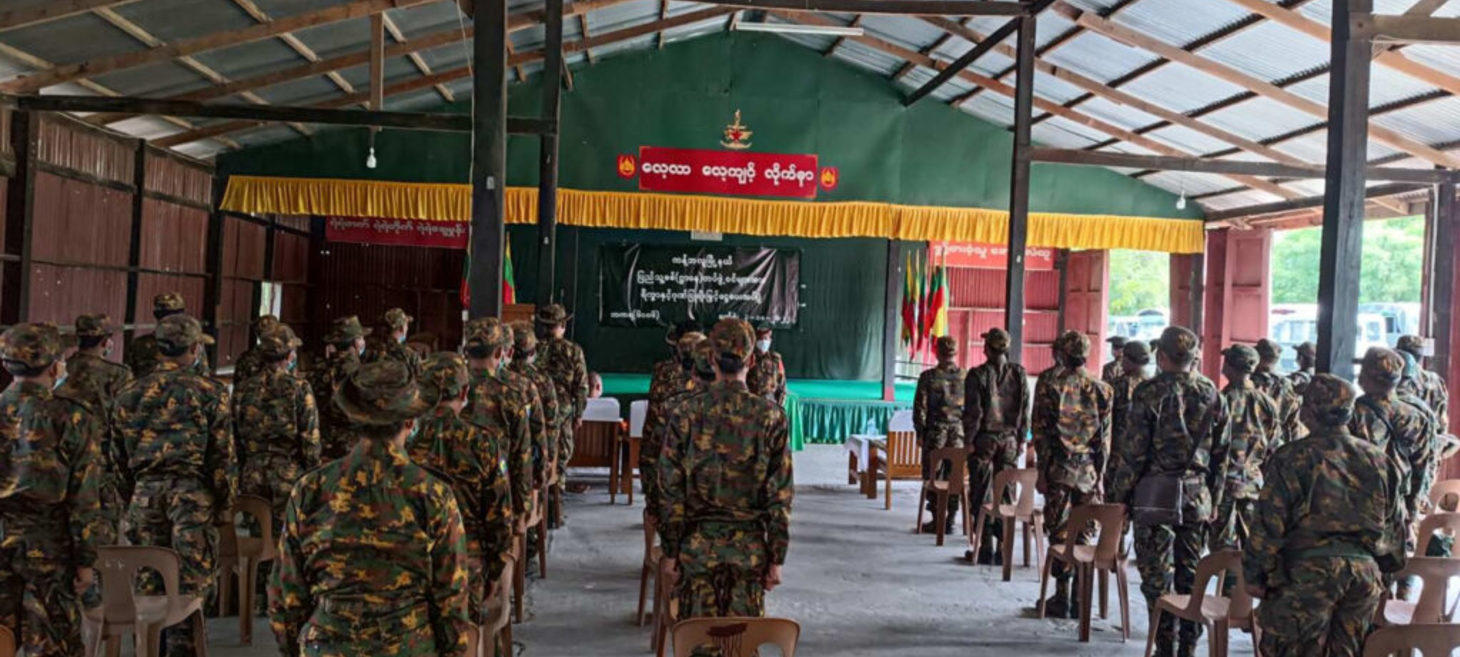
Myanmar Junta Arming Grassroots Militias to Control Urban Centers
The junta in Myanmar is reinforcing its control over major urban areas by establishing and arming home-front militias, known as “People’s Security and Anti-Terrorism” teams. These militias, composed mainly of men over 35 who are too old for military service and often low-income earners like tuk-tuk drivers, are tasked with enforcing the junta's authority within communities. Initially used for routine checks, they are now carrying firearms such as G-3 rifles and carbines in Mandalay and are involved in nighttime patrols with junta troops, leveraging their local knowledge. These militias are also deployed in areas with high tensions with resistance forces, suggesting they might be used as cannon fodder. Recruitment in Yangon has involved incentives like extra fuel allowances or threats of cut-offs, and the junta is actively trying to legitimize these groups through ceremonies and state media, as seen in Dagon Myothit (Seikkan) Township.
Telecommunications
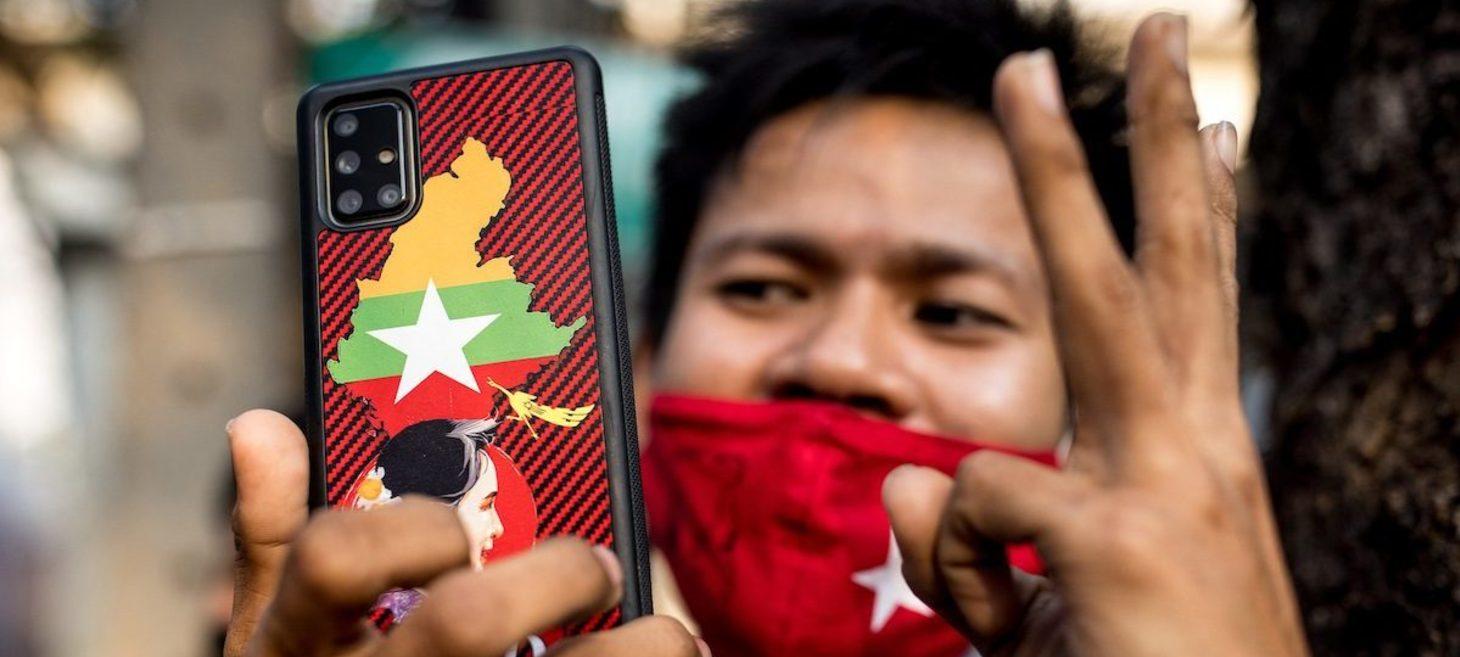
Musk, Myanmar, and the Murky Future of Internet Freedom
Myanmar's resistance groups and civil society organizations increasingly rely on Starlink, Elon Musk's satellite internet service, to bypass government-imposed internet blackouts and censorship, which have been extensive since the 2021 coup. This reliance provides a critical lifeline for coordination, sharing evidence of human rights violations, and accessing independent information in over 60 areas controlled by anti-junta forces. However, this dependence exposes these groups to significant risks, including potential tracking and interception of communications by the junta, and the possibility of service revocation or manipulation by Musk due to his personal decision-making or shifting political and economic interests, particularly given his ties to former US President Trump. The situation is further complicated by concerns that broad restrictions on Starlink due to online scamming could inadvertently cut off crucial communication channels for pro-democracy forces. The article concludes by emphasizing the broader global implications of such network dependency and suggests that resistance movements should diversify their digital infrastructure by exploring alternative technologies like localized mesh networks to mitigate these risks and avoid concentrating power over communication in the hands of a few foreign actors.
Weather & Environment
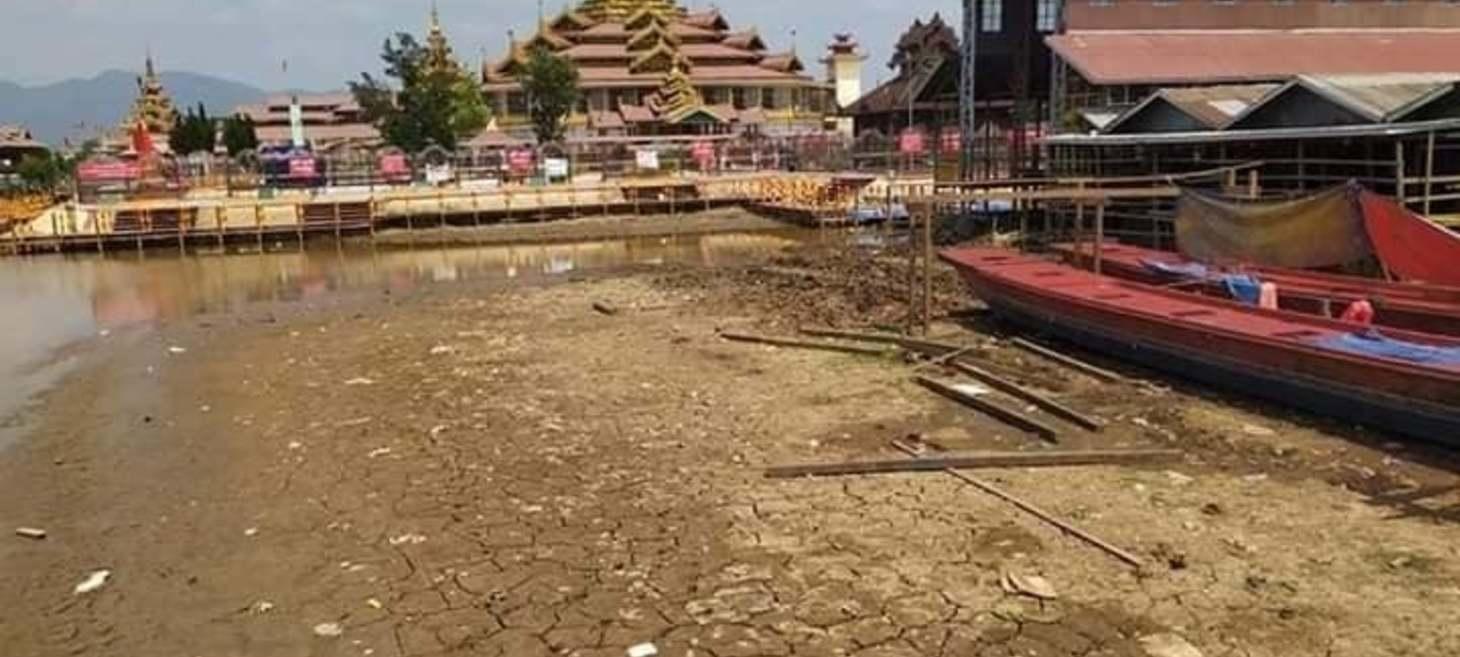
Inle Lake Dries Up, Stranding Villages and Causing Water Shortages
In March 2025, Inle Lake in Nyaung Shwe Township, Southern Shan State, is facing a severe drought, leading to the drying up of once-thriving lakeside villages like Heyar Ywarma and Min Chaung, paralyzing transportation, and causing dire drinking water shortages for residents and threatening agricultural livelihoods. Residents are struggling with the inability to travel by boat and even walk in some areas, and are forced to purchase water, while efforts to clear silt are costly. This crisis follows devastating floods in the region just months prior, highlighting the unpredictable climate. Despite the severe water shortage, authorities announced that the Inle Floating Thingyan Festival will proceed as planned.